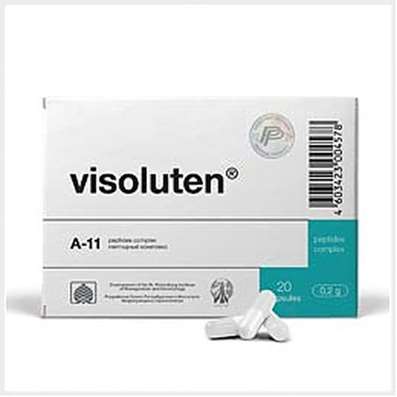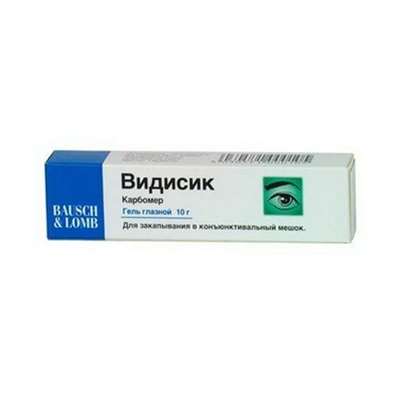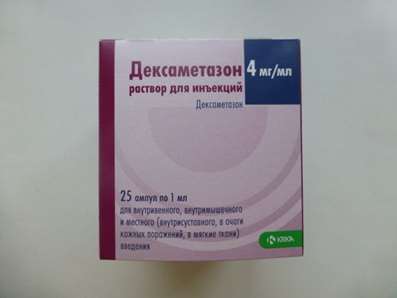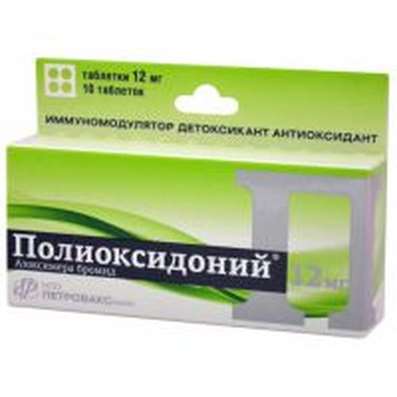Instruction for use: Diphereline
I want this, give me price
ATX Code L02AE04 Triptorelin
Active substance: Triptorelin
Pharmacological group
Gonadotropin-releasing hormone analogue [Hypothalamus, pituitary, gonadotropins and their antagonists]
Antineoplastic hormonal agents and hormone antagonists
Nosological classification (ICD-10)
C61 Malignant neoplasm of prostate
Adenocarcinoma of the prostate, Hormone-dependent prostate cancer, Hormone-Resistant Prostate Cancer, Malignant tumor of prostate, Malignant neoplasm of prostate, Carcinoma of the prostate, Locally-distributed non-metastatic prostate cancer, Locally advanced prostate cancer, Locally spread prostate cancer, Metastatic prostatic carcinoma, Metastatic prostate cancer, Metastatic hormone-resistant prostate cancer, Non-metastatic prostate cancer, Incompatible prostate cancer, Prostate Cancer, Prostate cancer, Common prostate cancer, Testosterone-Depot Prostate Cancer
D26 Other benign neoplasms of the uterus
Fibromyoma of the uterus, Myoma, Uterine fibroids, Fibromyoma, Myoma of the uterus, Fibrrios, Meigs syndrome, Tumors of the uterus
E30.1 Premature puberty
Premature puberty, Premature sexual development, Premature puberty in girls, Early puberty, Primary premature puberty
N80 Endometriosis
Endometrioid endometriosis
N97 Female infertility
Female infertility in anovulation, Hyperprolactinemic infertility, Hyperprolactinaemia with infertility, Endocrine infertility, Infertility due to hypothalamic-pituitary dysfunction, Infertility infertility, Infertility, Infertility on the background of hyperprolactinaemia, Functional infertility, Marriage is infertile, Infertility of ovarian genesis, Stimulation of the growth of a single follicle
Composition and form of release
Lyophilizate for the preparation of a solution for subcutaneous administration 1 vial.
Tryptorelin acetate (in terms of triptorelin) 0.1 mg
Auxiliary substances: mannitol - 10.0 mg
Composition of the solvent (1 ampoule): sodium chloride; water for injections
In vials (complete with a solvent); In the packaging of the contour cell 7 sets; In a pack of cardboard 1 package.
Liofilizate for the preparation of a suspension for intramuscular administration of prolonged action 1 fl.
Triptorelin acetate (in terms of triptorelin) 3.75 * mg
Auxiliary substances: DL-lactic and glycolic acid copolymer; Mannitol; Carmellose sodium; Polysorbate-80
Composition of the solvent (1 ampoule): mannitol; water for injections
* Taking into account the features of the dosage form, the drug contains an excess of the active ingredient to ensure the administration of an effective dose
In vials (complete with a solvent in ampoules, a syringe and two needles) in a pack of cardboard 1 set.
Liofilizate for the preparation of a suspension for intramuscular administration of prolonged action 1 fl.
Triptorelin pamoate (in terms of tryptorelin) 11.25 * mg
Auxiliary substances: DL-lactic and glycolic acid copolymer; Mannitol; Carmellose sodium; Polysorbate-80
Composition of the solvent (1 ampoule): mannitol; water for injections
* Taking into account the features of the dosage form, the drug contains an excess of the active ingredient to ensure the administration of an effective dose
In vials (complete with a solvent in ampoules, a syringe and two needles) in a pack of cardboard 1 set.
Description of dosage form
Diphereline® 0.1 mg: an almost-white lyophilizate dispersed in the applied solvent to form a clear solution practically free of particles.
Diphereline® 3.75 mg: white or white lyophilizate with a creamy hue, dispersed in the applied solvent to form a white or white suspension with a creamy hue.
Diphereline® 11.25 mg: a white or slightly yellowish lyophilizate dispersed in the applied solvent to form a white to slightly yellowish suspension.
The applied solvent is a clear, colorless solution.
pharmachologic effect
The pharmacological action is antigonadotropic.
Pharmacodynamics
Triptorelin is a synthetic decapeptide, an analog of the natural gonadotropin-releasing hormone releasing gonadotropin.
Diphereline® 0.1 mg
Animal studies and clinical studies have shown that after an initial period of stimulation, prolonged use of Dipheryl® 0.1 mg inhibits the secretion of gonadotropins with subsequent suppression of ovarian function.
Continuous use of Diphereline® 0.1 mg suppresses the secretion of gonadotropins (FSH and LH). Suppression of intermediate endogenous peaks of LH allows to increase the quality of folliculogenesis, increasing the number of ripening follicles, and, as a result, increase the probability of pregnancy per cycle.
Diphereline® 3.75 mg
After a short initial period of stimulation of the gonadotropic function of the pituitary gland, tryptorelin suppresses the secretion of gonadotropins and, accordingly, the function of the testes and ovaries. Continuous use of the drug inhibits estrogen secretion by ovaries to the state of menopause, and also reduces the secretion of testosterone, the concentration of which can reach the values that are observed after surgical castration.
Differelin® 11.25 mg
In the initial period of application of Diphereline® 11,25 mg temporarily increases the concentration of LH and FSH in the blood, respectively, the concentration of testosterone in men and estradiol in women increases. Prolonged treatment reduces the concentration of LH and FSH, which leads to a decrease in testosterone levels (to levels corresponding to the state after testuklektomii) and estradiol (to levels corresponding to the state of postovariectomy) approximately to the 20th day after the first injection and then remain unchanged throughout the period Administration of the drug.
Long-term treatment with tryptorelin suppresses the secretion of estradiol in women and, thus, prevents the development of endometrioid ectopias.
Pharmacokinetics
Diphereline® 0.1 mg
After SC injection into healthy adult volunteers at a dose of 0.1 mg, tryptorelin is rapidly absorbed (the time to reach Cmax - (0.63 ± 0.26) h with peak plasma concentration (1.85 ± 0.23) ng / Ml).
T1 / 2 is (7.6 ± 1.6) h, after 3-4 hours the distribution phase ends.
The total plasma clearance is (161 ± 28) ml / min.
The volume of distribution is (1562 ± 158) ml / kg.
Diphereline® 3.75 mg
After intramuscular administration of the prolonged form of the preparation, the initial stage of the rapid release of the drug substance begins, followed by a phase of constant release of triptorelin. Cmax is (0.32 ± 0.12) ng / ml.
The average amount of constantly released tryptorelin is (46.6 ± 7.1) mcg / day.
Bioavailability of the drug is about 53% per 1 month.
Differelin® 11.25 mg
When intramuscular injection of Diphereline® at a dose of 11.25 mg Cmax of triptorelin in blood plasma (in men and women) is determined approximately 3 hours after the injection. After the concentration reduction phase that lasts for the first month, up to the 90th day, the concentration of circulating tryptorelin remains constant (approximately 0.04-0.05 ng / ml - in the treatment of endometriosis and about 0.1 ng / ml in the treatment of prostate cancer ).
Indications
Diphereline® 0.1 mg
Female infertility. Carrying out ovarian stimulation together with gonadotropins (human menopausal, human chorionic), FSH in in vitro fertilization and embryo transfer programs, as well as other assisted reproductive technologies.
Diphereline® 3.75 mg
Prostate cancer;
Premature puberty;
Genital and extragenital endometriosis;
Fibroids of the uterus (before surgical intervention);
Female infertility (in the program of in vitro fertilization).
Differelin® 11.25 mg
Prostate cancer with metastases;
Genital and extragenital endometriosis (stages I-IV).
Contraindications
General for all dosages:
Hypersensitivity;
pregnancy;
lactation.
Differelin® 11.25 mg (optional):
Hormone-independent prostate cancer;
Condition after previous surgical testicularectomy.
Differelin® 3.75; 11.25 mg (optional):
With caution - with osteoporosis.
Differelin® 11.25 mg (optional):
With caution - in women with polycystic ovary syndrome.
pregnancy and lactation
Currently, gonadotropin-releasing hormone analogues are used in combination with gonadotropins to stimulate ovulation and pregnancy.
Pregnancy is a contraindication for the use of the drug. However, practice showed that after ovulation, stimulated in the previous cycle, some women became pregnant without stimulation and continued the further course of ovulation stimulation.
Summary: Experiments on animals have shown that the drug does not have a teratogenic effect.
Thus, the development of congenital anomalies in humans is not expected when using this drug, because Two qualitatively performed studies on animals did not reveal its teratogenic effect.
The results of clinical trials involving a small number of pregnant women using a gonadotropin-releasing hormone analogue showed no developmental or fetotoxic malformations.
Nevertheless, further study of the effects of the drug on pregnancy is necessary.
Since there are no data on the penetration of the drug into breast milk and its possible effects on the breastfed infant, it should not be treated during lactation.
Side effects
General for all dosages
At the beginning of treatment. In the treatment of infertility, a combination with gonadotropins can lead to ovarian hyperstimulation. In this case, an increase in the size of the ovaries, pain in the abdomen.
During treatment. The most common side effects are: sudden hot flashes, dryness of the vagina, decreased libido and dyspareunia associated with the pituitary-ovarian blockade.
Prolonged use of gonadotropin-releasing hormone analogues can lead to demineralization of the bones, a risk of osteoporosis (the above-described side effect was not observed with a short-term application of Diphereline® 0.1 mg).
Allergic reactions: urticaria, rash, itching, rarely - Quincke's edema.
In rare cases - nausea, vomiting, weight gain, increased blood pressure, emotional lability, impaired vision, pain at the injection site.
It is extremely rare - headache, joint and muscle pain.
Differelin® 3.75 mg additionally
In men, a decrease in potency. At the beginning of treatment, patients with prostate cancer may experience temporary pain in the bones affected by metastases (symptomatic treatment). In some cases obstruction of the ureters and symptoms associated with compression by metastases of the spinal cord (pass through 1-2 weeks) are noted. Also during this period there may be a temporary increase in the activity of acid phosphatase in the blood plasma.
In the treatment of premature puberty, girls can have spotting from the vagina.
Long-term use of the drug may cause hypogonadotropic amenorrhea.
After discontinuation of treatment, the function of the ovaries is restored and ovulation occurs on the average on the 58th day after the last injection of the drug. The first menstruation occurs on the 70th day after the last injection of Dipherylin®. This must be taken into account in contraceptive planning.
Diphereline 11,25 mg additionally
In men
At the beginning of treatment. Dysuric disorders (difficulty urinating, incomplete bladder emptying, soreness), bone pain associated with metastases and compression by spinal cord metastases, which can be exacerbated by a temporary increase in testosterone in the blood plasma at the beginning of treatment. These symptoms go through 1-2 weeks. Also during this period there may be a temporary increase in the activity of hepatic enzymes in the blood plasma.
During the treatment: blood flushes to the face, decreased libido, gynecomastia, impotence, which is associated with a decrease in testosterone in the blood plasma.
Among women
At the beginning of treatment. Symptoms associated with endometriosis (pelvic pain, dysmenorrhea), which may increase in connection with the initial transient increase in the concentration of estradiol in the blood plasma and disappear after 1-2 weeks.
A month after the first injection, metrorrhagia may occur.
For men and women:
Mood disturbance, irritability, depression, fatigue, sleep disturbance, weight gain, profuse sweat, paresthesia, blurred vision, febrile condition.
Interaction
Not described.
Dosing and Administration
Diphereline® 0.1 mg. PC.
Short protocol. Starting from the 2nd day of the cycle (simultaneously starting the stimulation of the ovaries), and finish the treatment 1 day before the planned introduction of human chorionic gonadotropin. The course of treatment is 10-12 days.
The long protocol. Daily subcutaneous injections of Dipherylin® 0.1 mg begin with the 2nd day of the cycle. When the pituitary is desensitized (E2 <50 pg / ml, i.e., about the 15th day after initiation of treatment), gonadotropins are stimulated and continue injection of Dipherylin® at a dose of 0.1 mg, ending them one day before the planned introduction of human chorionic gonadotropin . The duration of treatment is determined by the doctor individually.
Rules for the preparation of solution. Immediately before the injection, transfer the solvent to a vial of lyophilizate. Shake until completely dissolved. Used needles should be placed in a container that is sharp for sharps.
Diphereline® 3.75 mg. In / m.
Prostate cancer. Diphereline® is administered at a dose of 3.75 mg every 4 weeks, long-term.
Premature puberty. Children with a body weight of more than 20 kg - 3.75 mg every 28 days; Children with a body weight of less than 20 kg - 1.875 mg every 28 days.
Endometriosis. The drug should be administered in the first 5 days of the menstrual cycle - at a dose of 3.75 mg every 4 weeks. Duration of therapy - no more than 6 months.
Female infertility. Dipherelin® should be administered on the second day of the cycle at a dose of 3.75 mg. The association with gonadotropins should be monitored after desensitisation of the pituitary (estrogen concentrations in the blood plasma of less than 50 pg / ml are usually determined 15 days after the injection of Dipherylin®).
Fibromioma of the uterus. The drug should be administered in the first 5 days of the menstrual cycle. Dipherylin® should be administered every 4 weeks at a dose of 3.75 mg. Duration of treatment - 3 months (for patients preparing for surgery).
Rules for the preparation of suspension
Dissolution of the lyophilizate in the applied solvent should be carried out immediately prior to administration. Mix the contents of the vial with caution until a uniform suspension is obtained.
About incomplete injection, leading to a loss of more suspension than usually remains in the syringe for injection, it is necessary to inform the attending physician.
The introduction should be carried out in strict accordance with the instructions.
1. Treat the injection site with a tissue and alcohol. Remove the cap from the needle with a pink nozzle and attach it to the syringe. Collect all the solvent from the ampoule into the syringe.
2. Remove the plastic cover from the vial with lyophilizate. Insert the needle through a stopper of chlorobutyl rubber and transfer the solvent into the vial.
3. Pull the needle so that it remains in the vial, but does not touch the suspension.
4. Gently shake the contents until a homogeneous suspension is obtained, without flipping the vial.
5. Without turning the vial, dial into the syringe the entire suspension.
6. Remove the pink needle from the syringe. Connect the green needle (tighten the needle) to the syringe, taking only the colored tip.
7. Remove air from the syringe.
8. Immediately inject. Injection should be given only by intramuscular injection.
9. Immediately after injection, close the needle with a safety device in one of the following ways:
- Press the protective device towards the tip of the needle. Close the needle and snap the device;
- Turn the syringe over. Using a flat surface, press down on the device and close the needle.
10. The needle is closed when the needle tip is covered with the device. Check that the device is closed securely.
11. Use a colored nozzle to detach the needle. Dispose of needles in containers intended for sharp objects.
Diphereline® 11.25 mg. In / m
Prostate cancer. Diphereline® is administered at a dose of 11.25 mg every 3 months.
Endometriosis. Diphereline® is administered at a dose of 11.25 mg every 3 months. Treatment should be started in the first five days of the menstrual cycle. The duration of treatment depends on the severity of endometriosis and the observed clinical picture (functional and anatomical changes) on the background of therapy. As a rule, treatment is carried out for 3-6 months. It is not recommended to repeat a course of treatment with tryptorelin or gonadotropin-releasing hormone.
Rules for the preparation of suspension
Dissolution of the lyophilizate in the applied solvent should be carried out immediately prior to administration. Mix the contents of the vial with caution until a uniform suspension is obtained.
About incomplete injection, leading to a loss of more suspension than usually remains in the syringe for injection, it is necessary to inform the attending physician.
The introduction should be carried out in strict accordance with the instructions.
1. Treat the injection site with a tissue and alcohol. Remove the cap from the needle with a pink tip and attach it to the syringe. Collect all the solvent from the ampoule into the syringe.
2. Remove the plastic cover from the vial with lyophilizate. Insert the needle through a stopper of chlorobutyl rubber and transfer the solvent into the vial.
3. Pull the needle so that it remains in the vial, but does not touch the suspension.
4. Without turning the vial, gently shake the contents until a uniform suspension is obtained.
5. Without turning the vial, take the entire suspension into the syringe.
6. Remove the needle with the pink tip from the syringe. Attach a needle with a green tip (or a needle with a green tip and protective device) to the syringe, tighten it tightly, taking only the colored tip.
7. Remove air from the syringe.
8. Immediately inject.
If a needle with a green tip and protective device is used, then:
9. Immediately after injection, close the needle with a safety device in one of the following ways:
9.1. Push the protective device towards the tip of the needle. Close the needle and snap the device.
Or:
9.2. Turn the syringe over using a flat surface, push the device and close the needle.
10. The needle is closed when the needle tip is covered with the device. Check that the device is closed securely.
11. Use a colored tip to detach the needle.
12. Dispose of needles in containers intended for sharp objects.
Overdose
Cases of drug overdose are unknown.
special instructions
Diphereline® 0.1 mg
A warning. The ovarian response to the administration of Dipheryl® 0.1 mg in combination with gonadotropins can increase markedly in patients predisposed to it, and in particular in cases of polycystic ovarian disease.
The response of the ovaries to the administration of the drug in combination with gonadotropins can differ in patients, and it may be different for the same patients in different cycles.
Preventive action. Stimulation of ovulation should be carried out under the supervision of a doctor and with the regular biological and clinical methods of analysis: an increase in the content of estrogens in the plasma and the conduct of ultrasonic echocardiography. If the ovarian response is excessive, it is recommended that the stimulation cycle be discontinued and gonadotropin injections stopped.
Diphereline® 3.75 mg
At the beginning of treatment, there may be an increase in clinical symptoms, and therefore it is necessary to carefully appoint Diphereline® to patients with prostate cancer, at risk of developing obstruction of the ureters or compression of the spinal cord. Careful observation of these patients during the first month of therapy is necessary.
Before starting Dipherylin® therapy, it is necessary to confirm the absence of pregnancy.
Use with caution in patients with polycystic ovarian syndrome in ovulation stimulation schemes. This is due to the fact that a small number of patients may increase the number of induced follicles.
It is necessary to carefully monitor the level of stimulation of the cycle during in vitro fertilization to identify patients at risk of developing ovarian hyperstimulation syndrome, because the severity and frequency of the syndrome may depend on the dosage regimen of gonadotropin. If necessary, the introduction of human chorionic gonadotropin should be discontinued.
Differelin® 11.25 mg
Treatment of endometriosis. Before starting treatment, pregnancy should be excluded.
Non-hormonal contraceptives should be used during the first month of therapy.
Intramuscular injection of the drug leads to persistent hypogonadotropic amenorrhea.
Treatment should not be recommended for more than 6 months. It is not recommended to repeat a course of therapy with tryptorelin or another analogue of gonadotropin-releasing hormone.
The emergence of metrorrhagia during treatment, not counting the first month, is not the norm, and therefore it is necessary to determine the concentration of plasma estradiol. With a decrease in the concentration of estradiol to less than 50 pg / ml, there may be other organic lesions.
The function of the ovaries is restored after the completion of therapy. The first menstruation occurs an average of 134 days after the last injection. For this reason, the use of contraception should be started 15 days after the withdrawal of treatment, i.e. After 3.5 months after the last injection.
In the treatment of prostate cancer. The most pronounced beneficial effect is observed in patients in the absence of other previously conducted hormone therapy.
At the beginning of treatment, there may be an appearance and intensification of clinical symptoms (in particular bone pains, dysuric disorders) that are transient.
This involves careful observation of these patients during the first few weeks of therapy (testosterone level in the blood plasma should not exceed 1 ng / ml).
Treatment with Diphereline® should be carried out in strict accordance with the instructions for use. Any change in the volume of the injected / m suspension should be recorded.
storage Conditions
At a temperature not exceeding 25 ° C.
Keep out of the reach of children.
Shelf life
Lyophilizate for the preparation of a suspension for intramuscular administration of prolonged action 3.75 mg - 2 years.
Lyophilizate for the preparation of a suspension for intramuscular administration of prolonged action 11.25 mg - 3 years. 5 years - solvent.
Lyophilizate for the preparation of a solution for subcutaneous administration 0.1 mg - 2 years.
Do not use after the expiry date printed on the package.

 Cart
Cart





